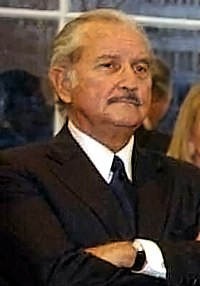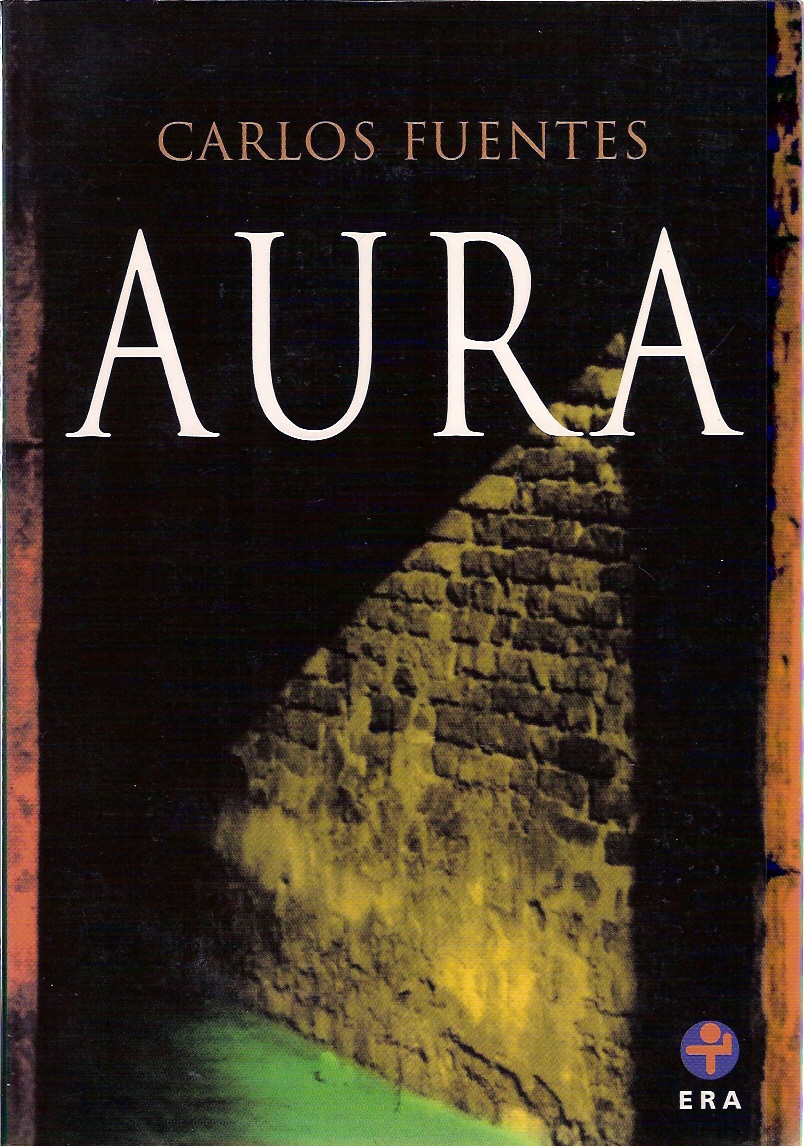Aura (1962)
My first experience of Fuentes was in our second year Introduction to Latin American Culture course, when Aura was one of the set texts. At just 62 pages, this short novel is considered one of the most important not just of Fuentes' work, but of modern literature in general. I have to admit, we were all quite thrown by it at first; it messes with your mind, and that's why it's so powerful. Fuentes creates a Gothic, claustrophobic and downright freaky atmosphere throughout the novel. It's one of the few examples of a novel written in the second person (Michel Butor's La Modification, which we also had to study, is another key example), placing the reader in the place of the main character and asking just who is narrating. Moreover, it mixes the present and future tense, making you lose any sense of time. This stylistic experimentation, beyond breaking down definitions of what a novel should be, reflect the main concerns of the story: the passing of time and fading of youth and beauty (an allegory on the Partido Revolucionario Institutional who having ruled since 1929 had long lost any revolutionary ambition), and the search for identity in contemporary Mexican society. It won't take you long to read and you won't regret it.
La Muerte de Artemio Cruz/The Death of Artemio Cruz (1962)
The Death of Artemio Cruz is a lot longer than Aura and more epic, covering the life of Artemio Cruz, from his youth in the Mexican Revolution to his long and painful death as an old and very powerful man. Certain experimental elements from Aura remain though, especially as Artemio becomes increasingly delirious. It has also considered to be, out of all of Fuentes' novels, the one which most successfully captures the questioning of Mexican identity. Again, the PRI come under fire, as do the shallow bourgeoisie encapsulated by Artemio's wife. At the same time, it is a deeply personal story of Artemio's history and relationships. Fuentes was a master of blending the personal and the political/sociological.
Todas Las Familias Felices/Happy Families (2006)
Fuentes' penultimate novel takes its name from the opening lines of Ana Karenina: "Happy families are all alike; every unhappy family is unhappy in its own way." It's a collection of short stories about dysfunctional families, from a wife who suffers her husband's sadism because she still loves him, to a daughter who prefers to live in the online world than have any human contact. In between each story is a 'Coro', like a lyrical poem related to the story, reflecting traditional oral culture. Through this collection of unhappy families, Fuentes simultaneously creates engrossing, multi-dimensional individual characters and paints a picture of contemporary Mexican society.




No comments:
Post a Comment